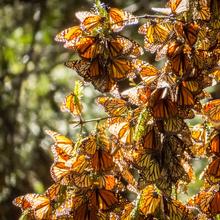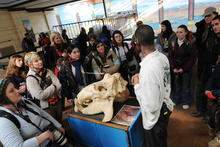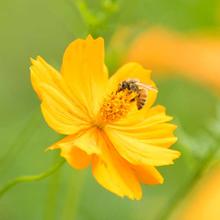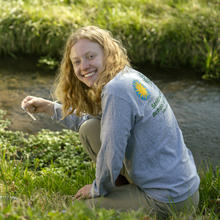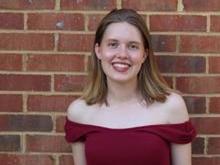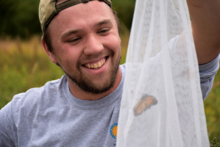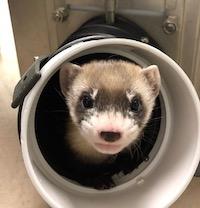- February 6, 2023
In late September, 18 undergraduates from the Smithsonian-Mason School of Conservation‘s (SMSC) Wildlife Ecology and Conservation program tagged monarch butterflies on their journey south to help researchers better understand their grand migration.
- July 14, 2022
In September 2009, Smithsonian-Mason Semester students took a during a behind-the-scenes tour of the Smithsonian’s National Zoo in Washington, D.C.
- June 14, 2022
Bees see the world in vibrant color…but that may be changing. Smithsonian-Mason team researches the impact with bee vision.
- April 28, 2022
Road salt has been touted as a lifesaver when it comes to combatting icy roads. Yet using this snow-melting mineral has a dark side once it enters waterways. Graduating senior Maggie Walker, through the Smithsonian-Mason School of Conservation (SMSC), is gathering data at local streams to influence change.
- December 15, 2021
Mason senior Eva Noroski spent a month assisting alumna and Elephant Trails keeper Ashley Fortner at the National Zoo, researching elephant sleep patterns.
- August 13, 2021
George Mason University is known for meeting students where they are.
- April 27, 2021
Sophia Chapin was the Honors College Multimedia Communications Intern from 2019 to 2021, during which time she improved the quality of Honors College student-, public-, and alumni- facing communications.
Ben Rhoades was involved with sustainability and environmental justice at Mason and is putting these commitments into practice as a Watershed Specialist for the Reston Association.
Black-footed ferrets were once thought to be extinct, until a small population was discovered in Wyoming in 1981. The species is still endangered, but scientists—including a George Mason University researcher and students at the Smithsonian-Mason School of Conservation (SMSC)—are coming to the rescue.
In December 2020, Willa, a black-footed ferret who died in 1988, was cloned using her cells that had been frozen. That clone, Elizabeth Ann, is now the first North American endangered species to be cloned in the United States. Senior Research Scientist Klaus-Peter Koepfli conducted critical research on her genetic cell line.

